Arch Enemy had been a band in my play list since I was 13, and since then my views of them have changed dramatically. I view them as a totally different group and, because of that, like them for different reasons than I did when I first heard
Nemesis. I can say that, like many other fans, I got sucked in by the fact that, despite being DEATH METAL, they had a female vocalist. I first heard of them from a short interview with the femme fatale herself, Angela Gossow, on
Metal: A
Headbanger’s
Journey. I went on to hearing
Doomsday Machine and
Rise of the Tyrant before noticing that Gossow was not always fronting the band.
The man who had once been the vocalist of
Arch Enemy is Johan Liiva. I heard his voice first from a live recording of “Let the Killing Begin” in terrible quality. I found his voice a lot harsher and grittier than Gossow’s, and after a while my skepticism turned into interest, and I found myself wondering what
Arch Enemy’s debut album,
Black Earth, sounded like. (Look at that CD cover and tell me you’re not interested!) It’s very hard to describe what I felt when first hearing Liiva after getting used to Gossow (I’d been a fan of Gossow for 6 months by now), but I’ll describe it as best as I can.
Right from hearing the first track, Bury Me an
Angel, I was left speechless. Although it is by no means as accessible or flashy as some of
Arch Enemy’s new stuff is, it really delivers on that “heavy fuckin’ metal” tone a lot better than songs like “
Revolution Begins” or “The Day You Died” from Gossow’s time. The guitars are down tuned all the way to B, giving it a real edge, especially coupled with Liiva’s deep, raspy bark. I remember after first hearing Bury Me an
Angel how the riff at 0:20 got stuck in my head and brought me back for more. The melodies on
Black Earth are great, and tend to have more passion than in the newer stuff. In fact, I’m just gonna come out and say it: this album beats the bejesus out of the modern Gothenburg Melodeath genre. It knows when it’s time to be heavy and when to be melodic, and the two elements are combined excellently. Unlike modern “melodic death metal” albums like A Sense of Purpose, you don’t have to remind yourself that you aren’t listening to Mallcore. It stays true and strong,
The guitars in the album are great, and not just talent-wise. They manage to write a ton of great riffs and solos that really carry most of the music, courtesy of the Amott brothers. A lot of the guitars will please fans of
Carcass, especially those that liked Heartwork. The songs aren’t written in any really technical way; it’s really more of what I’d consider your “meat-and-potatoes” melodic death metal. Although believe me when I say this isn’t the same Melodeath that comes to mind when you think of recent stuff. It doesn’t follow the crappy songs about being depressed and emo, or write left-wing protest songs with clean-vocals choruses, it keeps to the genre and stays focused.
The album isn’t just relentless non-stop brutality though; when I think of those things, I think of
Cannibal Corpse: no interludes, no instrumentals, and the same overall feel that never alters from songs to song. In this album though, you get breaks from the heavy riffs in the form of relaxing and well-done solos that salute 80’s hard rock and heavy metal. They serve as perfect interludes for you to relax and savor the music, rather than everything getting rushed through. The best example of this is in the song “Cosmic
Retribution” which has 2 solos and an acoustic interlude that makes this song my favorite in the bunch. There are also two instrumentals in this album:
Demoniality and Time Capsule.
Demoniality is one slow, heavy riff played several times that serves as an introduction to Transmigration
Macabre, the fastest and most aggressive song on the album. I think that
Demoniality shouldn’t be its own track; I think it would have been better if it had been cut down and put right into the song Transmigration
Macabre. Time Capsule is quite different; a looser, more relaxing solo accompanying a simple acoustic riff.
Although it may be hard for some of you to get used to (it certainly took me a while), Liiva’s voice becomes infectious. Although it doesn’t have the range it did in the follow-up album
Stigmata, and certainly not the range he had in
Burning Bridges, there’s a lot of passion in his vocals, and you can sense his enthusiasm. A small fault in the album that does detract from the overall score is the lyrics. Yes, apparently the uninspired vocals that
Arch Enemy has had have been around since before Gossow was writing them. Usually the lyrics are just average, but for the chorus of
Eureka (“EUREKA! I FOUND THE SECRET OF LIFE! EUREKA!”), you can see that the vocals weren’t the main concentration of the music, for sure. But in my opinion, this album is still better than anything released while Gossow was at the mike, and it’s unfortunate that no one can seem to combine melody and brutality the same way as was done in
Arch Enemy’s first three albums. A good way to describe the music on
Black Earth would be if you imagined
Carcass’ “Heartwork” combined with
Furbowl’s “Those Shredded Dreams”. I recommend this to anyone who wants to hear a good Melodeath album for a change, but I’d recommend
Arch Enemy’s magnum opus,
Stigmata, first.
Recommended songs:
COSMIC RETRIBUTION: Short and sweet, but it really packs a punch. The double solo and acoustic interlude are what set it apart from the rest of the songs.
TIME CAPSULE: Really nice solo melody that brings you back to earth and puts you in a good mood right before the climax of the album.
IDOLATRESS: Liiva’s vocals get really intense on this one, although the chorus is repeated one too many times at the end. The solo here takes on the soft-slow approach that you would expect to hear from a
Metallica power ballad, and takes on a quick arpeggio form as it nears the end.
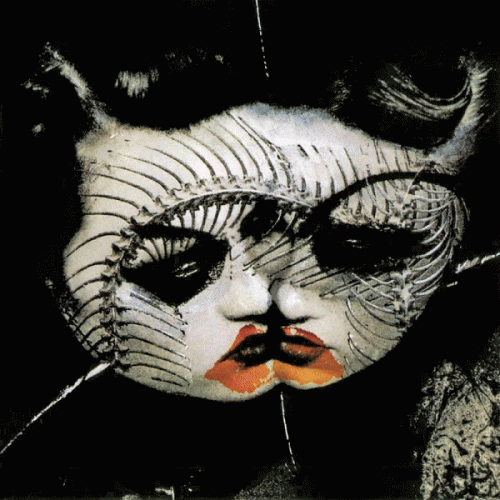 Arch Enemy : Black Earth
Arch Enemy : Black Earth












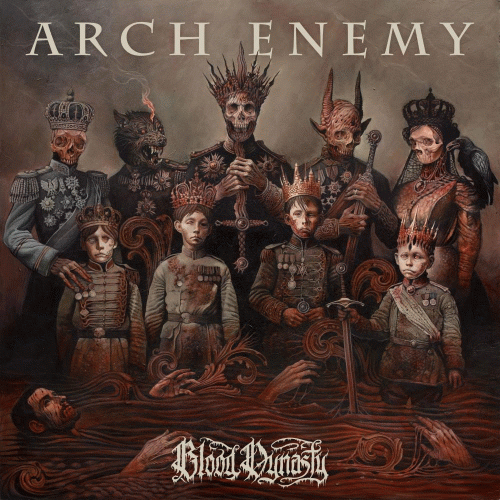
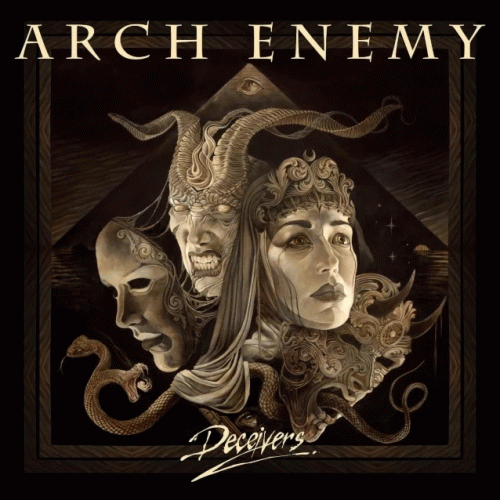
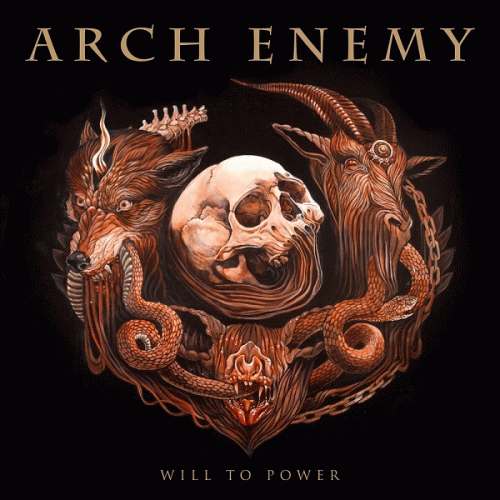
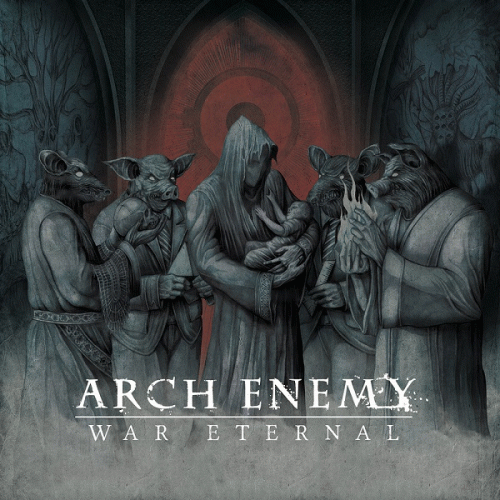
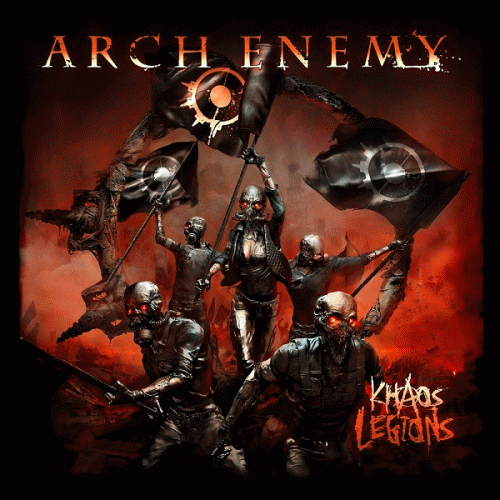
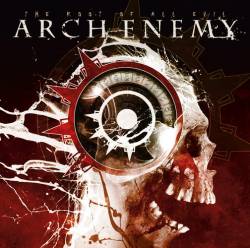
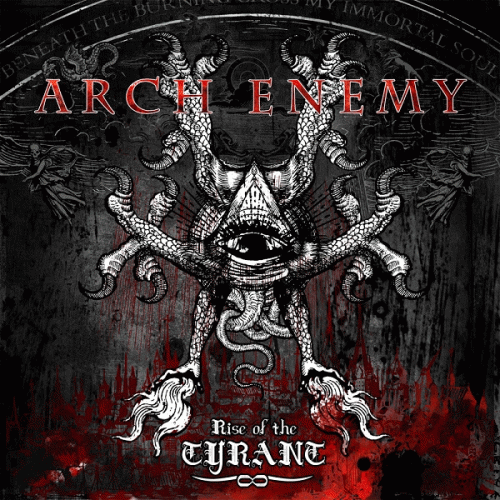
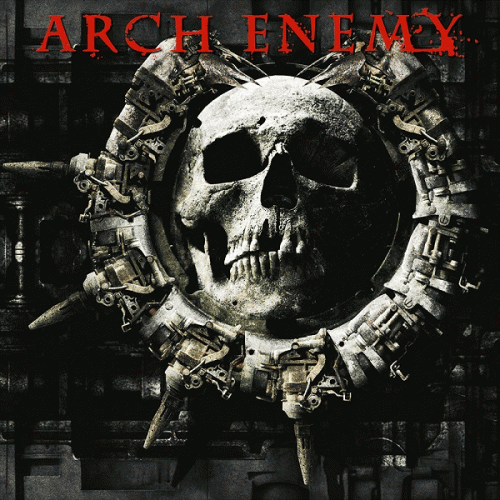
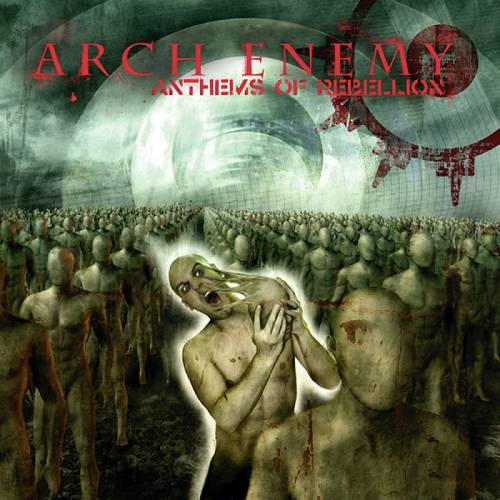
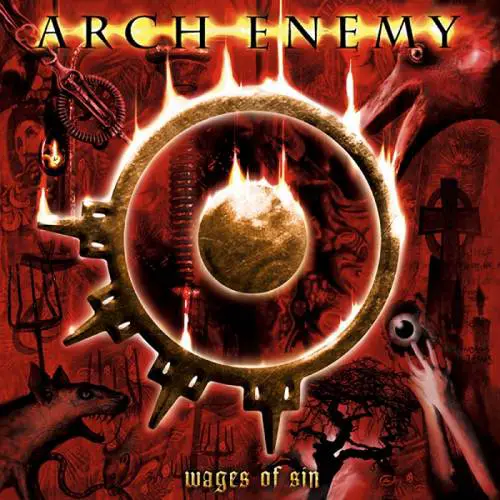
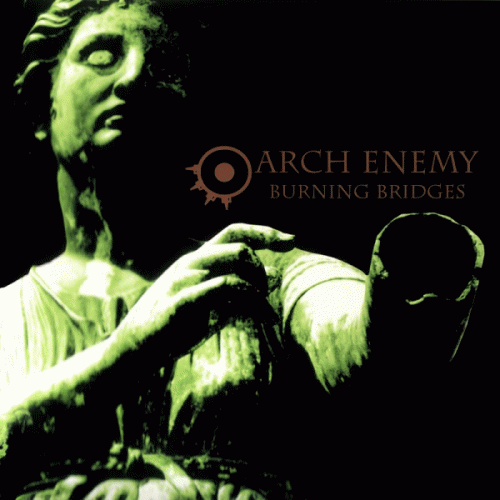
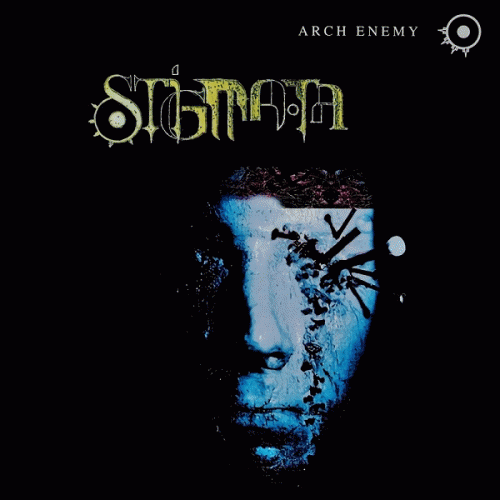
Musisz być użytkownikiem tej strony aby dodać komentarz